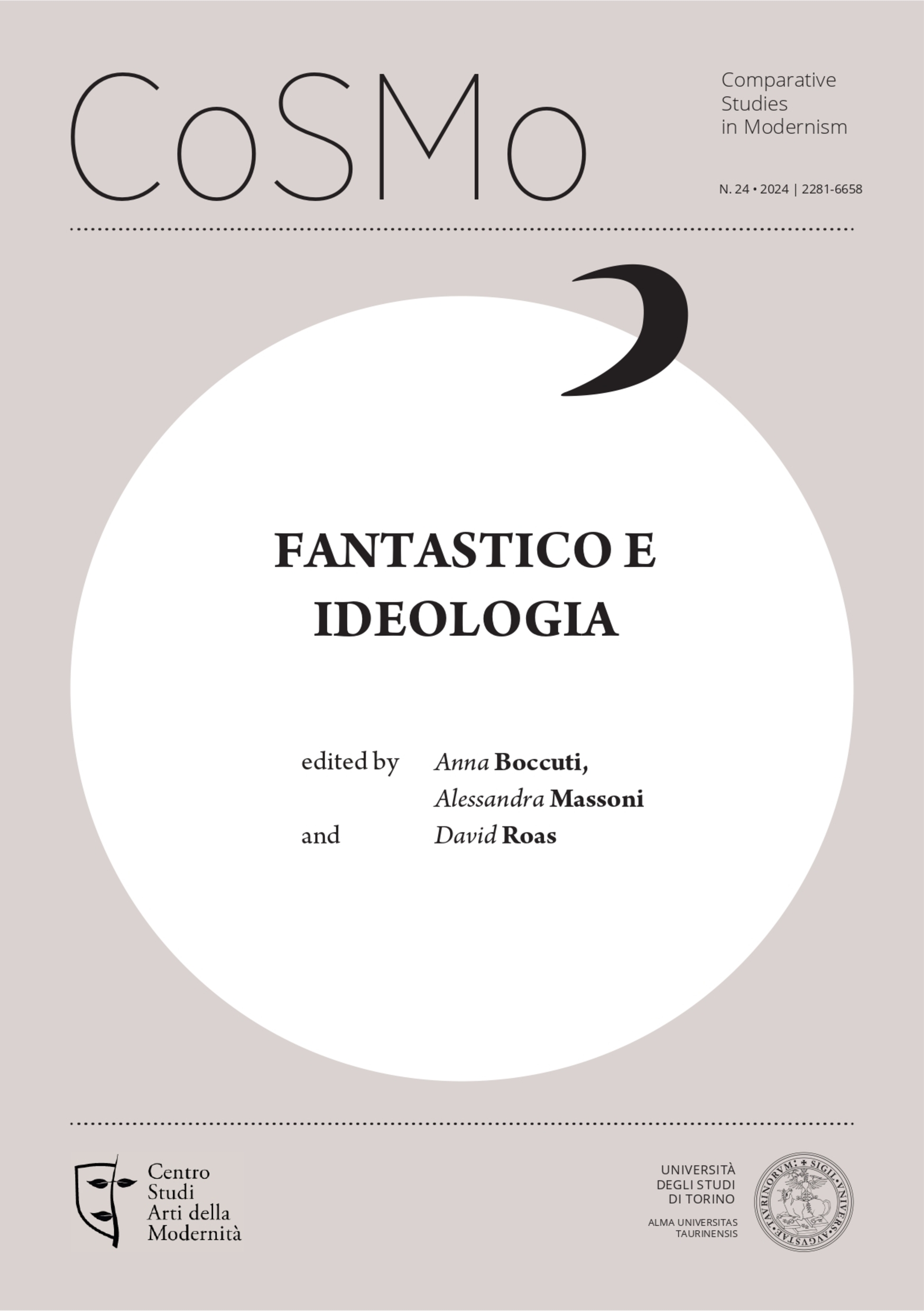“El oro de Bizancio se fatiga en San Marcos”
Perucho and the Fantastic Re-Invention of History
DOI:
https://doi.org/10.13135/2281-6658/10698Keywords:
Joan Perucho, History and Fantasy, Venice, Intertextuality, Literature and TravelAbstract
Considering Venice as seminal literary topos as many Hispanic and Hispanic American writers of the second half of the XX century did, in this article we analyze different texts by Juan Perucho who ‘portrays’ the lagunar city steeped in history. They are little-known texts, with dense literary and historical references, from “lyrical cells” (cf. P. Gimferrer) to short fabulations in prose; where the historiographical precision -always questionable- is created telling deliberately improbable stories that are paradoxically much more truthful than the real one. From these texts emerge that inventing a ‘fantastic’ Venice serves Perucho precisely to demonstrate -as Calvino did with his trilogy Our Ancestors, in the same years- that it is easier to approach a “revivalistic” interpretation of history (cf. C. Argan) i.e. imagining an anachronistic revitalization of the past, instead of believing that it is possible to narrate the lost past of a unique place only by knowing it historically.
Downloads
Downloads
Published
Issue
Section
License
Authors keep the copyrights for their work and give the journal the work’s first publication copyright, which is at the same time licensed under a Creative Commons License – Attribution, which in turn allows other parties to share the work with an acknowledgement of the work's authorship and initial publication in this journal.
Content Licence

You are free to copy, distribute and transmit the work, and to adapt the work. You must attribute the work in the manner specified by the author or licensor (but not in any way that suggests that they endorse you or your use of the work).
Metadata licence

CoSMo published articles metadata are dedicated to the public domain by waiving all publisher's rights to the work worldwide under copyright law, including all related and neighboring rights, to the extent allowed by law.
You can copy, modify, distribute and perform the work, even for commercial purposes, all without asking permission.





